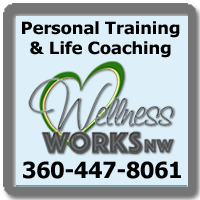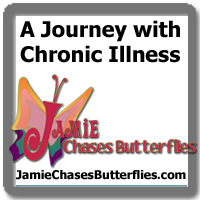Self-Care is a vital part of life that I think many of us have little to no knowledge of. I know I didn’t 10 years ago. Just like many other people, it took me getting really sick to make me start learning. I don’t want this to happen to you so here I am putting together an article that might inspire you to make healthy choices for your mind, body and spirit.
Every person is different and with that in mind, you have to take time to learn what you need to be at full capacity. What someone else needs might be close to what you need, but not necessarily your ideal. We can do this by really paying attention to our bodies to learning how much and what kind of stress we can handle, exactly how many hours of sleep we need during times of health and when we need to disconnect from the world to catch our breath and reset our mind, body and spirit.
I want you to be sure that I am very specific when I include mind, body and spirit in this article because each part of ourselves are different. What I need, is different to you, because we make different decisions, hold different beliefs and our bodies and minds probably have different needs for boundaries to be healthy.
Tips to Self-Care
- Make sleep a priority in your self-care routine
- Drink water
- Create and keep a physical hygiene routine
- Create a time for meditation
- Keep a daily workout routine
- Go outside every day and take self-care trips to help you disconnect from the every day stress.
- Get a pet or enjoy someone else’s
- Eat well
- Get organized
- Read a good book
- Schedule your self-care time and guard it faithfully. Do not let other people take you away from your self-care routine. Learn to say, “No.”
Sleep…
Sleep is so important because no other activity delivers so many benefits with so little effort. Sleep directly affects your mental & physical health, your quality of life regarding productivity, emotional balance, brain, heart and immune system health, creativity, vitality and body weight. Even minimal sleep loss can take a substantial toll on your mood, energy, mental sharpness and ability to handle stress. Long-term sleep loss can make a huge impact on your mental and physical health. Sleep is not just when our body shuts off, it is the time that our brain oversees biological maintenance that helps our bodies run well and prepare us for the next day.
- 1 hour of lost sleep can affect your ability to think properly and respond quickly; it also compromises your cardiovascular health, energy balance and ability to fight infections.
- Our bodies have a clock that can be reset by maybe 1 to 2 hours but it can take a week or more to make big changes to sleep times, especially when traveling across time zones or switching from day shift to night shift.
- Quality of sleep is more important than quantity of sleep. I can sleep for 12 hours and still feel exhausted because I live with nightmares and chronic pain as my norm. If you need help reaching good quality sleep please see your medical professional.
- Sleeping extra over the weekend does not make up for lack of sleep during the week, it only affects your sleep-wake cycle, making it harder for you to create and keep a successful sleep pattern.
Sleep requirements vary from person to person. Healthy adults generally need between 7 to 9 hours of sleep per night. How you gauge how much sleep you need is to create a log. On days where you feel energetic and alert all day, those are the days you have slept enough through the night. For more information about sleep please read: Sleep Needs found on HelpGuide.org
Water…
Our bodies are about 60% water and we are constantly losing water through urination and sweating so it is important to make sure you are drinking enough water every day. Generally healthy adults need about 2 liters of water per day (that equates to eight 8 oz glasses of water per day). Even when you are not thirsty some people believe you should be constantly sipping on water or unsweetened tea all day long.
By not drinking enough water each day, you can see changes in mood and concentration. Being mildly dehydrated can have a negative affect on your bodies performance and endurance and your brain’s ability to function properly.
Drinking a glass of water 30 minutes before you eat a meal can help you naturally crave less calories. It has also been found that drinking extra water can help you use more calories through the day which will lead to weight loss, if that is your goal.
Again, every body is different and has different needs. Your body will tell you how much water it likes. I personally work best when I drink 4 to 5 liters of water and or unsweetened, caffeine free tea; but I am also overweight and take a lot of medications and supplements so these are factors you may or may not have to consider. Karen feels best at 2 liters of water per day and Jamie prefers 3 liters per day to feel their best. It is important for you to know what your personal water intake goals should be.
Good Hygiene…
Have you ever filled out the form at the doctor’s office that asks how often you floss your teeth? Hygiene is important to our health both physically and emotionally. Every day you come in contact with millions of germs and viruses. Personal hygiene helps prevent illness. It also helps you feel better about yourself.
Everybody has their own ideas about personal hygiene here are the main categories of hygiene that should be considered when creating your own hygiene habits:
- Toilet hygiene
- Scrub your hands for 20-30 seconds every time you come in contact with the toilet. Be sure to wash between your fingers, the top and bottom of your hands and under your fingernails with soap and warm water and dry with a clean towel. If you don’t have access to soap use an alcohol-based hand sanitizer with at least 60% alcohol content and massage into your skin until dry.
- Shower hygiene
- It is recommended to shower at least every other day to wash dead skin cells, bacteria and oils off your body. You should wash your hair at least twice a week to remove skin buildup and oily residues that can irritate your skin.
- Nail hygiene
- Trimming your nails to keep them short and clean will help prevent the spread of germs into your mouth and other body openings. Brush under them with a washcloth or nail brush to wash away buildup of dirt and germs.
- Teeth hygiene
- Dental hygiene prevents gum disease and cavities. Brush at least twice a day with a soft tooth brush. Floss your teeth at least one time per day. Talk with your dentist about using antibacterial mouthwash. This is a habit that is often skipped when we are feeling depressed or anxious, that is why your medical doctor asks about your oral health.
- Hands hygiene
- Wash your hands every time you come in contact with the toilet
- before handling food
- before you eat
- after you handle garbage
- after you touch an animal
- after you cough or sneeze
- after changing a diaper
- after helping someone clean themselves
- before and after you clean a wound
- Sickness hygiene
- When you are sick stay home if at all possible. Make sure to cough into your elbow or a tissue and immediately throw the tissue away. Wipe down surfaces and door knobs and shared spaces and tools often.
- People who have chronic illness may have special rules and needs for their wellness. Because I have Lymphedema I need to wrap my leg or wear compression hose daily to minimize swelling. People with compromised immune systems will have their own needs to help them stay well and will probably require more understanding from people who are well. Because I have Generalized Anxiety Disorder, PTSD and OCD I need peaceful places and people to be around; I tend to keep to myself more and I don’t invite myself to spend time with people who have habits that are stressful to me. This does not mean I don’t enjoy people, it just means I have to be mindful where I use my energy.
If you have trouble remembering your personal hygiene or you are teaching your children hygiene it may be helpful to set reminders or hang signs to help people remember how and when to attend to their personal hygiene. After time these new skills will become habits and these reminders may not be needed. But it is important to create habits that will help you feel better and stay well.
Meditation…
To be truthful I am terrible at long-term meditation, I do better with small amounts of meditation throughout the day. I am not going to spend a lot of time on this topic because it is extremely personal. But meditation has been used for many years to help people reduce stress and quiet your mind. When you meditate you can clear away the information overload that we are bombarded with every day.
Meditation can help you:
- Gain new perspective on stressful situations
- Build new skills to manage stress
- Increase self-awareness
- Focus on being in the present which helps eliminate anxiety about the past or future
- Reduce negative emotions and create positive ones
- Increase imagination and creativity
- Increase patience and tolerance
- Reduce and manage symptoms of many chronic illness
Elements of Meditation include:
- Focused attention
- Relaxed breathing
- A quiet setting
- A comfortable position
- An open attitude
There are many ways to meditate, whether you choose yoga, guided meditation, gardening, worship or any of the many other ways to reach your goal it is important to find quiet for you own wellness.
Exercise…
Our bodies were made to move and be active. At least 20 minutes a day of movement can help balance your cholesterol, heart rate, blood pressure glucose and stress levels by getting your blood moving and your endorphins popping.
Depending your wellness goals, your workout may vary but it is important that you have a daily routine where you focus on movement. You may go to the gym for your big workouts but you should have a daily routine that includes stretching and strength training in order to get your blood moving and build stamina.
If you need help creating your daily and weekly workout routine(s) please contact Karen G Clemenson or another personal trainer of your choice.
You can also talk to your doctor about referrals for specific therapies as your body requires.
Get Outside…
Whether you just taking a walk or planning a weekend away, getting outside is a great way to reduce stress, lower your blood pressure and be more mindful. Going outside can reduce fatigue, depression and burnout. Nature is a great way to disconnect from regular stress and clear your mind.
Get a Pet…
Pets can add a lot to our lives. Pets offer unconditional love and companionship. Petting an animal can lower your blood pressure and help alleviate anxiety. Pets can be a large responsibility so if having your own pet is too much, I bet you have a friend that would love to let you walk their dog for them or play with their kittens. Volunteers are also welcome at shelters.
Good Eats…
We are constantly surrounded by marketing for restaurants and fast food (I am including processed foods in this too) and we tend to keep ourselves so busy it is easier to grab food on the go but it is so much better for our bodies if we eat good nutritious food. Cooking at home reduces calories and also gives us more control over what we put in your mouth.
It is important to eat foods that are good for your digestion and build up the good bacteria in your gut like: high-fiber foods including: raspberries, artichokes, broccoli, lentils, and whole grains and fermented foods like: yogurt, kimchi, sauerkraut, kefir and kombucha.
We also need to eat foods that are beneficial to our organs like fatty fish, blueberries, nuts, green leafy vegetables and cruciferous vegetables like: cabbage, cauliflower, collard greens and Brussels sprouts.
Get Organized…
Being organized can help you get rid of items that are in your way and you don’t use and take inventory of tools that can help you increase your wellness. Planners and calendars can help you keep appointments and get things done in a timely manner. You can also create areas to keep important things you need as you run out the door like your keys, backpack / briefcase, coats and shoes. Creating space to work in can also help you be more productive and creative.
Read a Book…
Have times you turn the TV off.
It has been found that too much screen time can actually add to our depression and anxiety. Reading a book or newspaper or magazine can help you disconnect and relax while learning new things. Creating a time that you turn off your phone and devices can improve your mood and help you be more present and mindful…plus if that book is a good self-help book you might be open to trying new things to add to your wellness.
Guard Your Self-Care Time…
With all the responsibilities we live with I know how hard it can be to create and keep your self-care time but I also know that if you don’t take good care of yourself you might end up in the hospital or worse. I also know that sometimes our relationships and social norms can make it hard to make our self-care a priority but we need to realize that this is not healthy. You deserve to make time to care for yourself. People who love you and want to encourage your wellness will learn to not impede on your self-care time, except for unforeseen emergencies, of course.
Moments alone helps us think about situations in our life that we might need to change. It helps us to value our relationships and ourselves. Self-Care time does not have to happen all at one time in the day. Find several times a day to focus on your hygiene, relationships, diet, movement and responsibilities and make sure to rest.
At this time in history we are going through some extraneous stressors due to the COVID-19 situation. It is important that we use this time to reflect and make decisions that will help us reach our wellness goals so that our future will be what we want them to be: happy, healthy and hopeful.
By now you know that Forever Fit Gym is closed in compliance with Governor Jay Inslee’s announcement on March 16, 2020. That doesn’t mean that Wellness Works NW is not working to inform you or that you can’t make a personal appointment with Karen. We are very interested in finding creative ways to continue to help you on your path towards wellness. Karen is still available by phone, we can set up FaceTime or Facebook Messenger with video, she can meet you at your home and different parks in the area as long as the group is smaller than 10 people and everyone is mindful to keep at least 3 feet between each other.
Please feel free to contact Forever Fit Gym on their Facebook page or contact your personal trainer in your normal manner because I know that we are not the only ones that will work with you.
Please take care of yourself. Be mindful of your physical, mental and spiritual needs and love your neighbor (keeping 3 feet between you, of course).
I hope this article answered questions you had and was easy to understand. If you would like us to write about a particular topic that you can’t find on this site, please send us an email on our Dear Jamie page and someone from Our Team will be glad to research and write about your topic.
Resources and Start Learning More:
- 10 Ways to Improve Your Gut Bacteria, Based on Science by Ruairi Robertson, PhD for HealthLine
- Creating a Personal Hygiene Routine: Tips and Benefits by Kimberly Holland and medically reviewed by Deborah Weatherspoon, PhD, RN, CRNA for HealthLine
- How Much Water Should You Drink Per Day? by Kris Gunnars, BSc for HealthLine
- Meditation: A simple, fast way to reduce stress by Mayo Clinic Staff
- Self Care 101 10 ways to take better care of you by Maria Baratta Ph.D., L.C.S.W for Psychology Today
- Self-Care: 12 Ways to Take Better Care of Yourself Exhausted, uninspired, or unwell? Read these self-care tips to take care of you by Tchiki Davis, Ph.D. for Psychology Today
- Sleep Needs by HelpGuide Staff
Related Articles
- Learning About COVID-19
- The Importance of Sleep
- The Importance of Taking Care of Your Eyes
- Book Review: Codependent No More How to Stop Controlling Others & Start Caring For Yourself Book Review
- The Importance of Self Care
I hope this article helps Fuel Your Wellness. Please leave your comments below.
 Summer D Clemenson is a co-owner Clemenson Enterprises, LLC and Wellness Works NW. Summer her wife, Karen G Clemenson’s personal motto is Creativity, Honesty & Positivity are a must! This mantra helps them stay community and wellness minded in all they do. Summer is an Independent Wellness Advocate at dōTERRA. Summer also writes poetry and inspirational blogs @ GoodTimesAlways.com. Her crochet art can be viewed and purchased @ KnottyWares.com & she loves special orders!
Summer D Clemenson is a co-owner Clemenson Enterprises, LLC and Wellness Works NW. Summer her wife, Karen G Clemenson’s personal motto is Creativity, Honesty & Positivity are a must! This mantra helps them stay community and wellness minded in all they do. Summer is an Independent Wellness Advocate at dōTERRA. Summer also writes poetry and inspirational blogs @ GoodTimesAlways.com. Her crochet art can be viewed and purchased @ KnottyWares.com & she loves special orders!



 Please wait...
Please wait...

